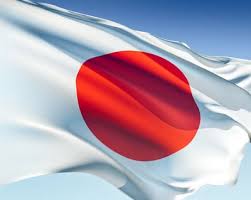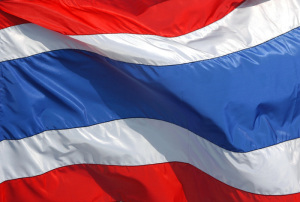TAIWAN
WRITTEN BY: MR. BLENDS
When I first decided upon teaching English in Taiwan, I would never have thought that I’d be coming to a country where the people are as friendly and as hard-working as Taiwanese people are. There is a sense of pride in what they do. It’s inspiring. I’m going to look at a few key areas and answer some of the burning questions the readers have.
Lifestyle and Entertainment
Taiwan is an easy country to live in, especially if you reside in any of the more notable cities, such as Taipei, Taichung, or Kaohsiung (Taibei, Taizhong, Gaoxiong). Here, you have access to world-class rapid transit, with enough subways and buses to get you where you need to be in a short, clean and comfortable time. There are loads of night markets and traditional day markets where you can fill your belly and your fridge, all while having a sufficient amount of cash left in your wallet. As far as entertainment is concerned, the cities are loaded with nightclubs, bars, and restaurants to balance out your work life and bring a little joy to your week. If you love shopping, there are enough malls and markets to dive into. For the health conscious individual, there are gyms and riversides spread all across the cities. Gyms are affordable and convenient and offer a variety of classes, such as Yoga, dance and Jiujitsu. The riversides often have more than enough basketball courts, soccer fields, and football fields, along with some baseball diamonds. It’s simple to travel in Taiwan and there are so many outdoor activities to engage in. There’s a lot of nature to explore, from biking to hiking and mountain climbing to scuba diving. Stay fit and entertained while you explore a new lifestyle and culture.
Food
For those who don’t cook, Taiwan is known for its affordability and convenience. Most street corners host 24-hour convenience stores that sell just about anything you might need, from a T-shirt to a chicken sandwich. There are also countless independent venders everywhere who sell all varieties of food and drinks, many of which remain open until midnight. Markets are also a great place to find a vast selection of tasty treats and hearty eats. If you prefer to cook your food, day markets, or traditional markets, are the place to be. They open at the crack of dawn, and they sell fresh fruits, vegetables, and meats until the mid afternoon. They are much better than your average grocery store. It’s the best choice for health conscious individuals.
Teaching
A large majority of the foreign residence are either teachers or students. There are also many who work with the elderly. For teachers, there are so many English schools in the cities. These are referred to as either cram schools or buxiban. These are schools where primary and elementary school students go after their regular classes. Essentially, it’s school, after school. Most cram schools will provide lesson plans, while some are more free-form and are accepting of your input. It’s rather simple to follow the lesson plans. Like any job, it takes a while to get into the flow of things, so don’t beat yourself up when you face challenges. As a teacher, you are the language expert. You cannot forget this. You are paid a handsome wage to deliver quality and care from the perspective of a native English speaker. Understand your value and purpose and you’ll reap the rewards. It’s simple to get interviews. You could very well send out resumes, via e-mail, and a quick call at that very moment and find that you have an interview in a few hours. If the job opening is posted, they want it filled, immediately. A lot of people teach elementary school students, but there are many who only teach adults. Both options are great, but the adult teaching game isn’t as widespread outside the cities. Try to pick up one or two private students for conversation to fill out your time. It’s well worth it in the bank and it’s a great way to be social. Those who have teaching certificates and degrees may work in elementary schools or even high schools, where they work longer hours, but earn a sufficient amount more. The life of a teacher in Taiwan can be amazing. Since you’re only working 15-30 hours per week, you’ll have a lot of free time to study the language and travel. If you have an independent business idea, this is the place to allow it to grow. Make a plan and see it through.
Housing
Living is affordable in just about every area of Taiwan. Whether you’re living alone or sharing a place with friends, you’ll find that it is simple to find a place that suits your needs. It’s safe to say that you can find a 2 bedroom apartment, complete with a bathroom, living room, and a kitchen for around $500CDN per month. Most apartments are at least partially furnished, some completely. You may have to purchase some odds and ends. Amenities are beyond reasonable. The closer you live to a subway (MRT) line or bustling area, the more expensive, naturally. Housing is not an issue.
Money
As mentioned earlier, you will be paid a handsome wage for your work. This is mostly by Taiwanese standards. You may be paid two or three times the amount of your average Taiwanese local. You should be getting paid a minimum of $20CDN per hour, to start. The more professional schools will offer regular raises, either at the end of the year or half-year. Learn the conversion rate and learn how to manage your money. Many new-comers tend to spend much more than necessary, because they are wowed by low price tags. Understand how Taiwanese people use their money and look carefully at what they view as expensive. It will prove to be beneficial in the end. With food and living expenses as low as they are, you should have no problem saving money and sending some back home, monthly, to keep your other accounts active. Living here is more about how you spend and save, as opposed to how much you earn. When you understand that balance, your wealth will increase.
JAPAN
WRITTEN BY: STEVE
After reading the rest of the reviews on working here, I have to agree with them all. However, as Christina said, it’s not what it used to be. After the collapse of the largest private English teaching company in the country in 2007, things have gotten a harder. The biggest changes are in visa sponsorship, pay, and working hours. It used to be if you had a pulse and grew up speaking English you could put on a tie and get paid about 300,000¥/year (about $30,000 US at the time) and not break a sweat doing it. Nowadays, the big companies left and the little ones still in the field have changed their game. If you’d like to teach professional classes to adults, you’ll likely only be able to find part-time work.
Most of my friends still teaching adults have several part-time jobs. They make good money, but they do work six days a week, albeit a pretty quiet six days: 4 hours this day, 5 this, etc. One can always fill in some hours with private lessons which tend to pay about 3,000¥/hour (or about $35US), but they’re not as easy to come by as they once were either. Also, big caveat with the little companies, once you start working a lot of them will try to squeeze extra work out of you at a lower rate than your initial class pay.
The big difficulty in teaching adults (for Americans at least, since our country isn’t on any working holiday exchange programs (write your representatives!)) is finding a company to sponsor your visa. I think most people coming here for the first time, are going to have a really hard time finding work and making ends meet taking this approach without a working holiday visa.
But there is hope. If you’re dead set on coming to Japan, I’d recommend looking into teaching children. The pay isn’t great and it’s a bit more challenging but there is more opportunity, especially if you’re new to the country. There are several international kindergartens in the Kansai area (I’m sure even more in Tokyo) and companies that will hire you to work in public schools (elementary through high school) as an Assistant Language Teacher (ALT). With public schools–from what I’ve heard through friends–you get a lot of free time during the day (which can be good or bad since you can’t leave the school), the pays not bad and the hours make it easy to supplement in some private students after work. However, it’s hard being the one foreigner on staff. Often you will feel like an outsider, and if you don’t try to speak Japanese and make an effort to engage with the other teachers, you’ll likely be an outsider. As for teaching at an international kindergarten (what I’m currently doing) it pays well and you get a lot of vacation time (about 2 months of the year off and paid). On the downside, you have to work for it, 8 hour days and real teaching (so expect to stay late some days and maybe even do some work at home). It’s rewarding because the children are fluent speakers and they are you’re students so you will build a bond with them.
In short, getting here is now the battle. Once you’ve established some time here, there are lots of options to choose from. And it’s a great place to live. I’ve been here five years after planning to only come out for a year. Here in Osaka, it’s a big city but affordable. You can go out on the weekends and party till dawn, eat at nice restaurants, have a nice apartment and still have some cash at the end of the month.
JAPAN
WRITTEN BY: ADAM
– not as great as it used to be. i think most people are working freelance, for contract agencies, or for few hours at remaining schools (gaba), community colleges (senmon gakko) or for public schools in jet. opportunities for foreigners outside english teaching are limited and more difficult to negotiate.
– only need a bachelor degree and a foreign appearance
– contract is usually negotiated before start
– pay avg’s $2000/month, but after travelling around jp, i had saved nothing after a year
– less than 30hr/week
– nightlife in osaka seems better than in other cities. there’s a vibrant live music scene (punk music) and club scene (hiphop, dancehall).
– cultural sights in spades (hyogo has himeji castle, kyoto has fushimi-inari shrine, wakayama has koyasan temple complex), but natural sights are fewer (mino in north osaka)
– food is incredible: all levels of dining from street food (takoyaki, okonomiyaki, oden, doteyaki) to high end (kaiseki, kappo, michelin-starred french). street food is more expensive than on the asian continent, but high end is usually cheaper than in europe.
– more english is spoken in cities with tourists (kyoto, hiroshima) – but intermediate japanese is essential to live there, especially beyond the first year.
JAPAN AND SOUTH KOREA
WRITTEN BY: CHRISTINA
Pros and cons of Japan and Korea. Okay, happy to help you out.
For a con, I would say how the eastern culture’s ways were very different from westerners, although they’re adapting to both ways (and hopefully westerners can adopt eastern ways too). Specifically in both countries, when someone was hurt, no one came to help. That seemed so cold. I witnessed a man having epilepsy after Nova one day, and all the natives stood around him, taking photos. No one called for help. Those ending their shift from Nova heading down to the red line were the only ones who got help for the man. Another time, and old man fell all the way down the subway steps. Everyone ignored him. I offered help, thinking it was the right thing to do. To me, it seemed like a lack of humanity.
Pro’s were expanding my horizons and mind seeing different cultures (not just natives, but other foreigners from other western countries too). I think it boosted my confidence in speaking/traveling anywhere. It made me appreciate what I had at home (b/c I was poor in Japan! I missed my friends/family at home). It made me realize what I was capable of teaching others/helping others. When finding employment now, a lot of establishments are impressed w/me living abroad, and some language skills I have learnt.
JAPAN
WRITTEN BY: NIKO
Teaching English in Japan is a great way to have a working holiday and explore an intriguing culture. It can even be a decent career or a springboard to start your own business. The down side is that the job can be so easy that a teacher can become complacent and lose focus of their reason for being in Japan. It is important to have a goal and keep focused. This is true for no matter where you are in life, but especially so in Japan.
SOUTH KOREA
WRITTEN BY: JT
Taxes, health insurance, pension. Every month about 10-15% total of your check is devoted to these things. Health care is dirt cheap. Doctor visit and prescription $10. Pension can be withdrawn when you finish your time here. Equal to about a months pay each year.
Comfortable living- you can eat well, party, and still save money. Haven’t heard of any teachers who lives as comfortably as the teachers in Korea.
Depending on the job there are lots of other perks. Is possible to have lots of free time and vacation but not at a hagwon. Definitely not teaching adults.
Cons – if you teach adults you have to work splits quite often. So the schedule is tiring. Plus you’re often required to work some weekends during your contract.
Management doesn’t always see eye to eye with western business practices. You may be told one thing but have something different happen. This is mostly hearsay because I’ve never had this problem. Some bosses are overbearing and expect too much from their employees such as working past their scheduled time without pay.
Housing is sometimes lower quality then expected.
THAILAND
WRITTEN BY: EVAN
Thailand is a great country to be an expat in because of the low cost of living. The luxury of cheap food, accommodation, and widely available party in Thailand can make the beautiful country side, cities, and beaches even more attractive for excursions and adventures. It may still be possible to live well on $30 a day and in some cases much less if one embraces the lifestyle of your average Thai person.
One difficulty with living in Thailand is the almost impenetrable culture due to the strong feelings of cultural identity. There is no real integration as an expat will always be labelled as ‘falang’ or foreigner. Price inflation and pre conceived notions about cultural attitudes are hard to dispel and this can result in a negative perspective which is maintained by groups of foreigners who feel prejudiced against.
Choose your social circle wisely because there are some very shady characters lurking around Thailand.
SYDNEY
WRITTEN BY: AB
– jobs are competitive, many colleges have closed
– degree + celta is the bare minimum
– full-time contract is almost impossible, casual is the norm
– pay starts at $40/hr – but cost of living (esp. rent) is v. expensive (much more than japan)
eg. pay could be $4000/month, but after tax and rent, more like $2000
– 20hr working week, with the option of taking on more
– nightlife lacks variety, is expensive, but a handful of places are a lot of fun
– not many cultural sights, but natural sights are excellent (beaches, rainforests, etc)
– we all speak English





